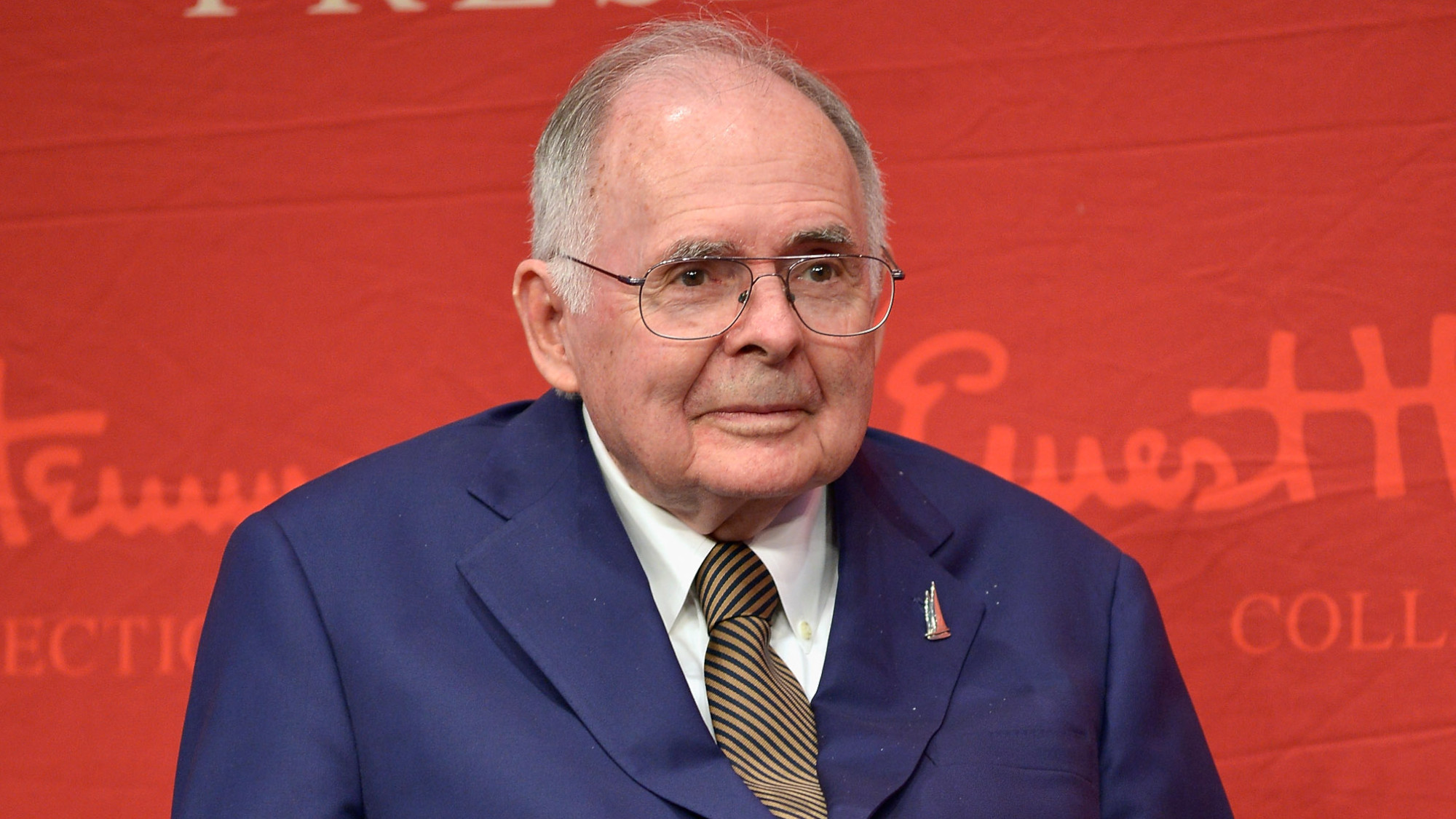Willem Kolff
The surgeon who was the father of artificial organs
The surgeon who was the father of artificial organs
Willem Kolff
1911–2009
The Week
Escape your echo chamber. Get the facts behind the news, plus analysis from multiple perspectives.

Sign up for The Week's Free Newsletters
From our morning news briefing to a weekly Good News Newsletter, get the best of The Week delivered directly to your inbox.
From our morning news briefing to a weekly Good News Newsletter, get the best of The Week delivered directly to your inbox.
In 1938, the year Willem Kolff received his medical degree, he saw a young man die hideously from kidney failure. “I felt that if I could remove every day 20 grams of urea from this man,” he recalled, referring to the built-up waste product that had killed him, “then he could live.” Kolff, who died three days before his 98th birthday, eventually realized his dream. A pioneering surgical technician born in Leyden, the Netherlands, he devised not only the first artificial kidney—the modern dialysis machine—but also the first practical artificial heart.
“Although his childhood goal was to become the director of a zoo,” said the Los Angeles Times, “his father convinced him to study medicine instead.” Just as his career was beginning, Germany invaded his homeland. “Kolff drove through the city streets, dodging bombs and snipers and collecting bottles, tubing, and all the other paraphernalia needed for storing blood.” Within four days, he created Europe’s first blood bank, which still operates today. During the war, he aided the local resistance movement, “providing medical ‘alibis’ to help many escape detection.”
Working against wartime constraints, said The Washington Post, Kolff labored to build an artificial kidney. He realized that when “blood containing high concentrations of acid, urea molecules, and salt is put in a porous container and placed in a bath of water, those substances will move through the pores and out of the blood.” Kolff figured that if these waste products could be filtered from someone with failing kidneys, that person could survive until the organs recovered sufficiently to begin working again. Using cellophane sausage casings, orange juice cans, parts from a Ford water pump, and other spare parts, Kolff built the world’s first, albeit primitive, dialysis mechanism. His first 16 patients died; his 17th was a Nazi collaborator who had been comatose for a week. “People begged, ‘Let her die,’” he recalled. Nonetheless, Kolff hooked the woman up to the machine. Soon, she slowly opened her eyes and spoke her first words: “I am going to divorce my husband.” She lived for another seven years.
Improved versions of Kolff’s artificial kidney saved thousands of lives in the ensuing decades, said The New York Times. After the war, he emigrated to the U.S., where “he developed a membrane oxygenator for bypass surgery and the first artificial heart, which, in 1957, kept a dog alive for 90 minutes.” Twenty-five years later, Kolff had improved the heart to the point where it received federal approval for human implantation. “It carried the name of a colleague, Dr. Robert Jarvik, because it was Kolff’s policy to attach the name of the co-worker who was currently working on any particular model of artificial heart.” The first recipient of the Jarvik-7 was Dr. Barney Clark, a retired dentist, who lived for 112 days before dying of multiple organ failure. Later versions of Kolff’s handiwork have kept other patients alive even longer.
A free daily email with the biggest news stories of the day – and the best features from TheWeek.com
Kolff received more than a dozen honorary degrees and more than 120 international prizes. He continued to work well into his 80s, attempting to perfect artificial limbs, eyes, and ears. Survived by four sons and a daughter, he was divorced by his wife of 63 years, Janke, in 2000, reportedly because she couldn’t stand his constant tinkering.
-
 31 political cartoons for January 2026
31 political cartoons for January 2026Cartoons Editorial cartoonists take on Donald Trump, ICE, the World Economic Forum in Davos, Greenland and more
-
 Political cartoons for January 31
Political cartoons for January 31Cartoons Saturday's political cartoons include congressional spin, Obamacare subsidies, and more
-
 Syria’s Kurds: abandoned by their US ally
Syria’s Kurds: abandoned by their US allyTalking Point Ahmed al-Sharaa’s lightning offensive against Syrian Kurdistan belies his promise to respect the country’s ethnic minorities
-
 Bob Weir: The Grateful Dead guitarist who kept the hippie flame
Bob Weir: The Grateful Dead guitarist who kept the hippie flameFeature The fan favorite died at 78
-
 Brigitte Bardot: the bombshell who embodied the new France
Brigitte Bardot: the bombshell who embodied the new FranceFeature The actress retired from cinema at 39, and later become known for animal rights activism and anti-Muslim bigotry
-
 Joanna Trollope: novelist who had a No. 1 bestseller with The Rector’s Wife
Joanna Trollope: novelist who had a No. 1 bestseller with The Rector’s WifeIn the Spotlight Trollope found fame with intelligent novels about the dramas and dilemmas of modern women
-
 Frank Gehry: the architect who made buildings flow like water
Frank Gehry: the architect who made buildings flow like waterFeature The revered building master died at the age of 96
-
 R&B singer D’Angelo
R&B singer D’AngeloFeature A reclusive visionary who transformed the genre
-
 Kiss guitarist Ace Frehley
Kiss guitarist Ace FrehleyFeature The rocker who shot fireworks from his guitar
-
 Robert Redford: the Hollywood icon who founded the Sundance Film Festival
Robert Redford: the Hollywood icon who founded the Sundance Film FestivalFeature Redford’s most lasting influence may have been as the man who ‘invigorated American independent cinema’ through Sundance
-
 Patrick Hemingway: The Hemingway son who tended to his father’s legacy
Patrick Hemingway: The Hemingway son who tended to his father’s legacyFeature He was comfortable in the shadow of his famous father, Ernest Hemingway